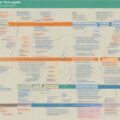What is Music Therapy?
Music therapy is the clinical and evidence-based use of music interventions to accomplish individualized goals within a therapeutic relationship. Music therapists use music to address physical, emotional, cognitive, and social needs.
How Does Music Therapy Work?
During music therapy, a board-certified music therapist will assess the client’s needs and create an individualized treatment plan. Interventions may include singing, songwriting, instrument play, music-assisted relaxation, lyric analysis, and more. The music acts as a medium to achieve non-musical goals.
Who Can Benefit From Music Therapy?
Music therapy can benefit people of all ages and abilities. It has shown effectiveness for individuals with:
- Autism spectrum disorder
- Dementia and Alzheimer’s
- Chronic pain
- Mental health needs
- Developmental disabilities
- Traumatic brain injuries
- Parkinson’s disease
What Are the Benefits?
Research shows music therapy can have many benefits, including:
- Improved communication
- Increased socialization
- Reduced anxiety and stress
- Enhanced memory and cognition
- Improved pain management
- Promoted rehabilitation
How to Find a Music Therapist
To ensure you work with a qualified professional, search for a board-certified music therapist (MT-BC). Check with hospitals, clinics, community centers, and universities in your area to access music therapy services.
FAQ
What instruments are used in music therapy?
Common instruments include guitar, piano, drums, percussion, and music technology. The instruments used depend on the individual’s needs and goals.
Is music therapy covered by insurance?
Sometimes. Many insurance plans cover music therapy when ordered by a physician as a treatment for an illness, disorder, or injury. Check with your insurance provider.
What qualifications should a music therapist have?
Music therapists must complete an accredited music therapy program and obtain the MT-BC credential to demonstrate proper education and training.
What happens in a typical music therapy session?
Sessions often involve instrument play, singing, improvisation, songwriting, lyric analysis, guided relaxation, and more. The activities target non-musical goals.
Can I do music therapy at home?
Self-administered music therapy activities can complement professional treatment, but should not replace sessions with a qualified MT-BC. An MT-BC designs interventions based on assessed needs.









